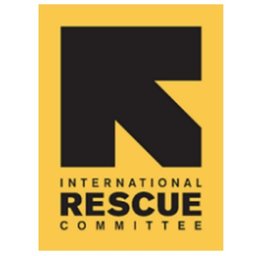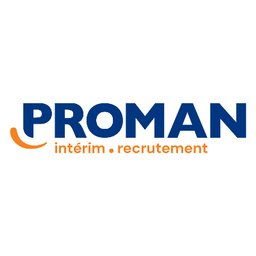Job Opportunities in Nigeria

September 6, 2024
International Rescue Committee
Abuja
FULL TIME
Consultancy Service: IRC Communication and Advocacy Capacity Development Workshop
The International Rescue Committee (IRC) responds to the world’s worst humanitarian crises, helping to restore health, safety, education, economic wellbeing, and power to people devastated by conflict and disaster. Founded in 1933 at the call of Albert Einstein, the IRC is one of the world's largest international humanitarian non-governmental organizations (INGO), at work in more than 50 countries and more than 25 U.S. cities helping people to survive, reclaim control of their future and strengthen their communities. A force for humanity, IRC employees deliver lasting impact by restoring safety, dignity and hope to millions. If you're a solutions-driven, passionate change-maker, come join us in positively impacting the lives of millions of people world-wide for a better future.
Background
The International Rescue Committee (IRC) is a global leader in delivering humanitarian aid to communities affected by conflict and natural disasters. In Nigeria, the IRC is committed to providing lifesaving interventions across Northeast and Northwest regions, particularly in states like Borno, Adamawa, Yobe, Katsina, and Zamfara. The IRC’s Communication and Advocacy team plays a pivotal role in ensuring these interventions are effectively communicated to diverse audiences, enhancing the visibility and impact of the organization's work.
To further strengthen the capacity of its Communications and Advocacy team, IRC is organizing a comprehensive workshop in October 2024, in Abuja. The workshop will focus on developing essential communication skills, including drone operation, digital media strategies, photography, videography, radio drama production, and infographic design. This TOR outlines the scope, objectives, methodology, deliverables, and other key aspects of the consultancy service required to support the successful execution of this workshop.
Objectives of the Consultancy
The primary objective of this consultancy is to provide expert facilitation and training during the IRC Communication and Advocacy Capacity Development Workshop. The consultant(s) will be responsible for delivering specialized training sessions that align with the workshop's objectives, which include:
- Enhancing the technical skills of IRC communication personnel in areas such as drone operation, digital media, photography, videography, radio drama production, internal communication development, and infographic design.
- Strengthening participants' ability to craft compelling narratives and advocacy messages that effectively communicate the IRC’s mission and programs.
- Promoting continuous professional development among IRC’s Communication and Advocacy team members.
The consultant(s) will be expected to:
- Develop Training Modules: Create detailed and practical training modules for each of the key focus areas mentioned in the workshop objectives. The modules should include hands-on exercises, case studies, and real-world applications tailored to the IRC’s operational context in Nigeria.
- Facilitate Training Sessions: Lead and facilitate interactive training sessions during the five-day workshop, ensuring participants are actively engaged and able to practice the skills being taught.
- Provide Technical Support: Offer one-on-one or small group technical support to participants as they apply the skills learned in their specific roles, ensuring they can effectively use the tools and techniques covered in the workshop.
- Evaluate Participants: Assess the progress and skill acquisition of participants through quizzes, practical assignments, and other evaluation methods. Provide feedback to participants to help them improve and refine their skills.
- Develop Resource Materials: Create comprehensive resource materials, including guides, toolkits, and reference documents that participants can use after the workshop to continue developing their skills.
The consultancy will employ a participatory and hands-on approach to training, utilizing the following methods:
- Classroom Sessions: Structured lectures and presentations on the theoretical aspects of each focus area, followed by interactive discussions.
- Practical Exercises: Hands-on training with equipment such as drones and cameras, as well as practical sessions on digital media strategies and infographic design.
- Group Work: Collaborative exercises where participants work in teams to develop communication products or strategies, allowing for peer learning and support.
- Case Studies: Analysis of real-life examples from the IRC’s operations to illustrate best practices and common challenges in communication and advocacy.
- Feedback Sessions: Regular intervals for feedback and reflection, enabling participants to discuss challenges and successes in applying new skills.
The consultant(s) will be required to deliver the following:
- Training Modules: Detailed training modules for each key focus area, complete with handouts, slides, and other instructional materials.
- Workshop Facilitation: Effective facilitation of the five-day workshop, ensuring all sessions are delivered as planned and objectives are met.
- Resource Materials: A comprehensive set of resource materials, including a toolkit on internal communication development, a guide to drone operation, and best practices for digital media and storytelling.
- Participant Evaluations: Individual and group assessments of participants, including feedback on their performance and recommendations for further development.
- Final Report: A detailed report on the workshop, including an evaluation of participant engagement, key outcomes, lessons learned, and recommendations for future training initiatives.
The consultancy will span a total of 10 days, which includes:
- 2 days for preparation and development of training materials.
- 5 days for workshop facilitation.
- 3 days for post-workshop evaluation, report writing, and submission of deliverables.
- The workshop will be held in Abuja, Nigeria. The consultant(s) will be expected to be present in Abuja for the duration of the workshop.
- Expertise in Communication and Advocacy: Demonstrated expertise in the areas of communication and advocacy, particularly within a humanitarian or non-profit context.
- Technical Skills: Proficiency in drone operation, digital media strategies, photography, videography, radio drama production, and infographic design.
- Training Experience: Proven experience in developing and delivering capacity-building workshops, with a strong focus on practical, hands-on training.
- Cultural Competency: Familiarity with the cultural and operational context of Nigeria, particularly in the regions where the IRC operates.
- Strong Communication Skills: Excellent verbal and written communication skills, with the ability to convey complex information in a clear and engaging manner.
Interested consultants are invited to submit the following:
- A detailed proposal outlining their approach to the consultancy, including a work plan and timeline.
- A financial proposal, including a breakdown of fees and any other associated costs.
- CV(s) of the consultant(s) with relevant experience and qualifications.
- Examples of previous work, particularly in similar contexts.
The closing date for applications is 20th September 2024
Note: Applications lacking any of the above requirements will not be considered.
Evaluation Criteria
Proposals will be evaluated based on the following criteria:
- Understanding of the TOR and the proposed methodology.
- Relevant experience and qualifications.
- Cost-effectiveness of the financial proposal.
- Quality of previous work and references.
- The IRC reserves the right to accept or reject any proposal without providing an explanation.
- The selected consultant(s) will be required to sign a contract with IRC, agreeing to the terms and conditions of the consultancy.
- All intellectual property generated during this consultancy will remain the property of the IRC.
Commitment to Gender, Equality, Diversity and Inclusion: IRC is committed to creating a diverse, inclusive, respectful, and safe work environment where all persons are treated fairly, with dignity and respect. The IRC expressly prohibits and will not tolerate discrimination, harassment, retaliation, or bullying of IRC Persons in any work setting.
Gender Equality: IRC is committed to narrowing the gender gap in leadership positions. We offer benefits that provide an enabling environment for women to participate in our workforce including parental leave, gender-sensitive security protocols and other supportive benefits and allowances.
Employment Gaps: We welcome applicants with varied career paths and recognize that a gap in employment does not define a candidate's potential. We value transferrable skills and are committed to investing in the growth and development of our team members. We encourage applicants to highlight any relevant skills or experiences they have acquired, even if they were not gained in a traditional work setting.
Compensation and Benefits: IRC strives to provide externally competitive and internally equitable Compensation and Benefits programs that attracts, motivates, and retains employees that deliver strong performance while demonstrating the IRC Way Standards for Professional Conduct.
Equal Opportunity Employer: IRC is an equal opportunity employer and we value diversity and inclusion. We do not discriminate on the basis of race, nationality, ethnicity or tribe, gender, age, religion, caste, sexual orientation, differently abled, geographic origin, marital status, veteran status and cultural background (or any other characteristic protected by law). We will ensure that individuals with disabilities are provided reasonable accommodation to participate in the job application or interview process, to perform essential job functions, and to receive other benefits and privileges of employment. Please contact us to request accommodation.
Standard of Professional Conduct:The IRC and the IRC workers must adhere to the values and principles outlined in the IRC Way – our Code of Conduct. These are Integrity, Service, Accountability, and Equality.
Commitment to Gender, Equality, Diversity, and Inclusion: The IRC is committed to creating a diverse, inclusive, respectful, and safe work environment where all persons are treated fairly, with dignity and respect. The IRC expressly prohibits and will not tolerate discrimination, harassment, retaliation, or bullying of the IRC persons in any work setting. We aim to increase the representation of women, people that are from country and communities we serve, and people who identify as races and ethnicities that are under-represented in global power structures.
We regret to inform you that this job opportunity is no longer available
Latest Job Opportunities
September 20, 2024
Tenece Professional Services Limited
Sales Executive (Real Estate)
Enugu
FULL TIME
View DetailsSeptember 20, 2024
Mondial Tourisme
Commercial (H/F) pour couvrir les secteurs PACA - Poste en CDI (avec période d'essai)
View Details

Similar Jobs

September 6, 2024
StreSERT Services Limited (Third Party Recruitment)
Legal Specialist(with experience in Telecommunications sector)
Abuja
FULL TIME
View DetailsAugust 30, 2024
Africa Leadership Foundation
Communication and Publication Officer (CPO)
Abeokuta
View DetailsSeptember 10, 2024
EMGEE Resources Limited
Business Development and Strategy Personnel
Abuja
View DetailsNew Jobs from This Company

September 12, 2024
International Rescue Committee
Senior Safety, Security and Access Manager (National Position)
View Details
September 12, 2024
International Rescue Committee
Malaria Project Officer (National Position)
View Details

